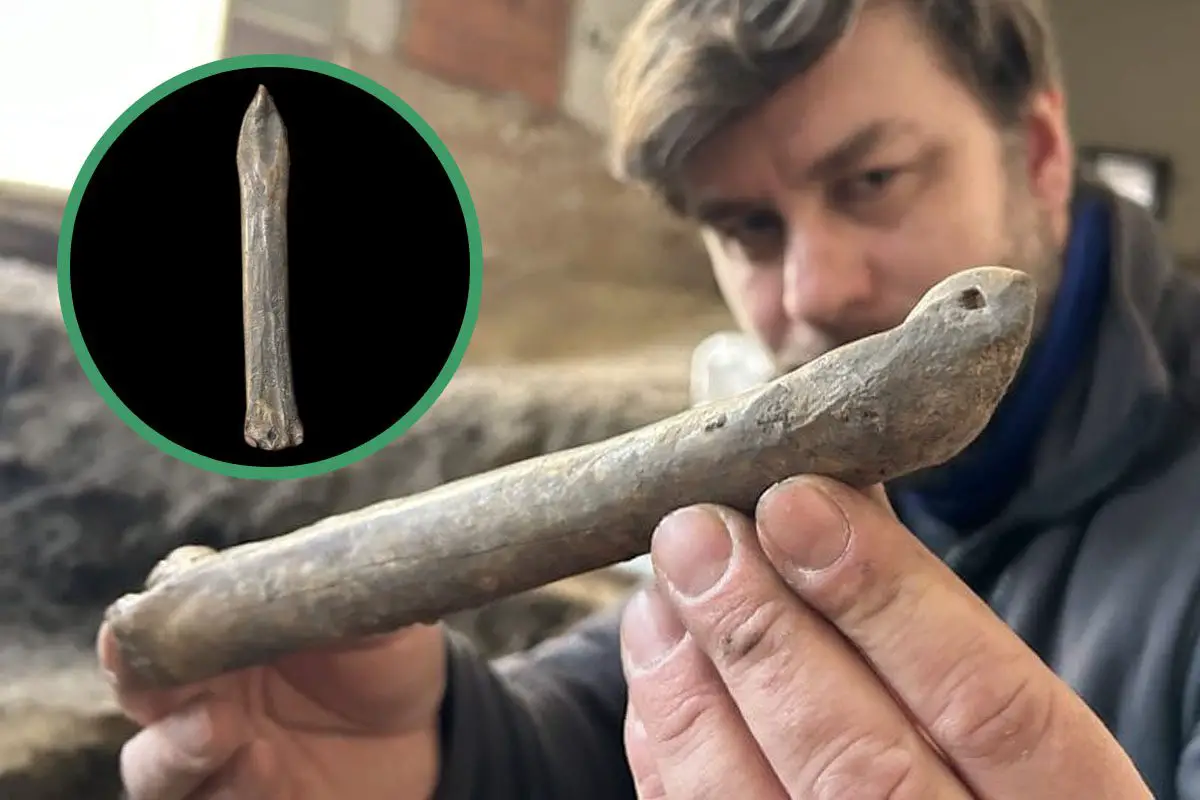Archaeologists from the Comenius Museum in Přerov have uncovered an ice skate made from animal bone in the city of Přerov, located in the Olomouc Region of the Czech Republic.
The researchers were conducting rescue excavations in the city’s Upper Square, which during the 10th or 11th century was a series of smaller settlements along the branches of the Bečva River, centred on a fortified square where a fortress would later be constructed.
Přerov first appears in recorded history around the mid-12th century in a deed of bishop Jindřich Zdík. The deed describes the city’s administrative function in the castle system of the Přemyslid state, a Bohemian royal dynasty that reigned in the Duchy of Bohemia and the later Kingdom of Bohemia and Margraviate of Moravia.
While excavating the basement of a house in the Upper Square area, archaeologists uncovered a 1,000-year-old bone skate among fragments of ceramics.
According to the researchers, the skate is made from a horse’s shin bone and has a carved tip with a drilled hole and another hole at the back for threading a strap. This strap would then likely be attached to a shoe or possibly a sledge.
Speaking to Radio Prague International, Zdeněk Schenk, an archaeologists on the rescue excavation said: “Rather than skating, they would shuffle along the frozen surface with the help of a stick or two. They would also attach the blades to sledges to carry a load of goods across the frozen water.”
Similar examples of bone skates made from cattle or horses have been previously found in Přerov and parts of Europe, with one such example being found in the vicinity of the recent discovery in 2009.
Header Image Credit : Lenka Kratochvílová, Czech Radio
Sources : Radio Prague International





